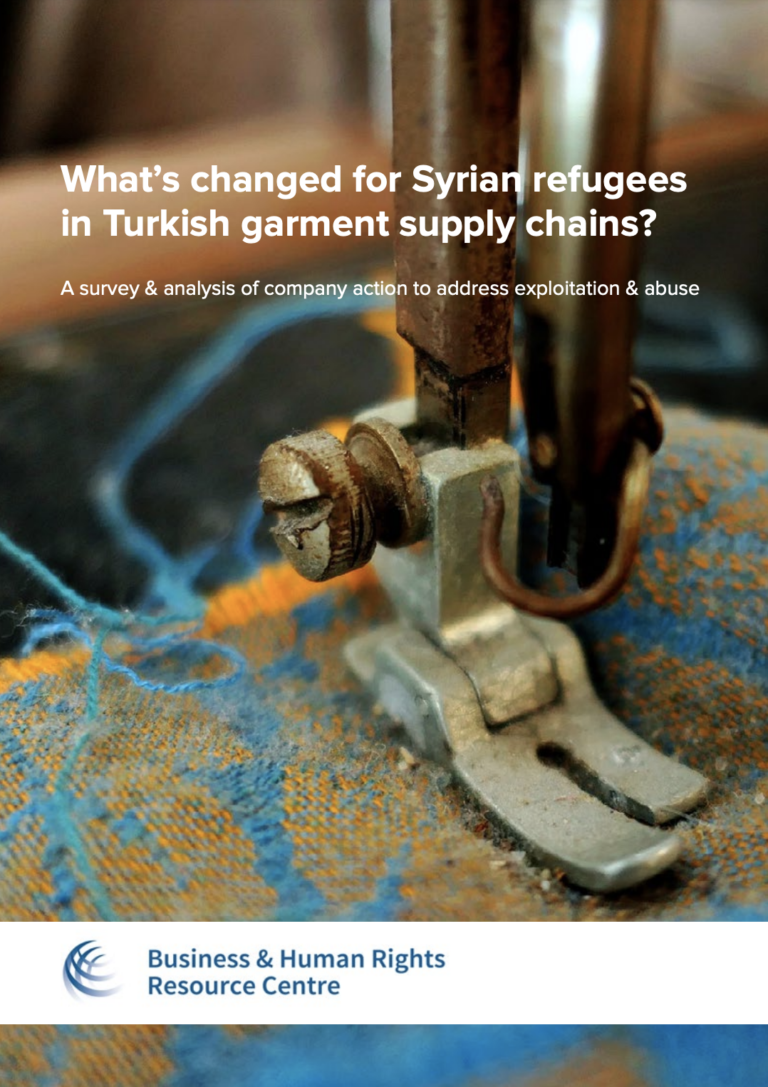An estimated 650,000 Syrian refugees have fled their home country to escape bloodshed and have found a lifeline working in Turkey, with many working in the garment industry. Without these jobs, many families would face desperate times and would struggle to support themselves. However, the garment industry in Turkey is complex and exploitative conditions are too common. Since 2015, reports and investigations have exposed poor wages, discrimination, and child labour by Syrian refugees working in the Turkish garment industry.
This report builds on analysis from February 2016 and October 2016. 37 brands were approached with a set of questions on their actions to protect Syrian refugees in their supply chains, and in July and August 2017 the authors visited Turkey to assess recent developments and speak to people on the ground.

